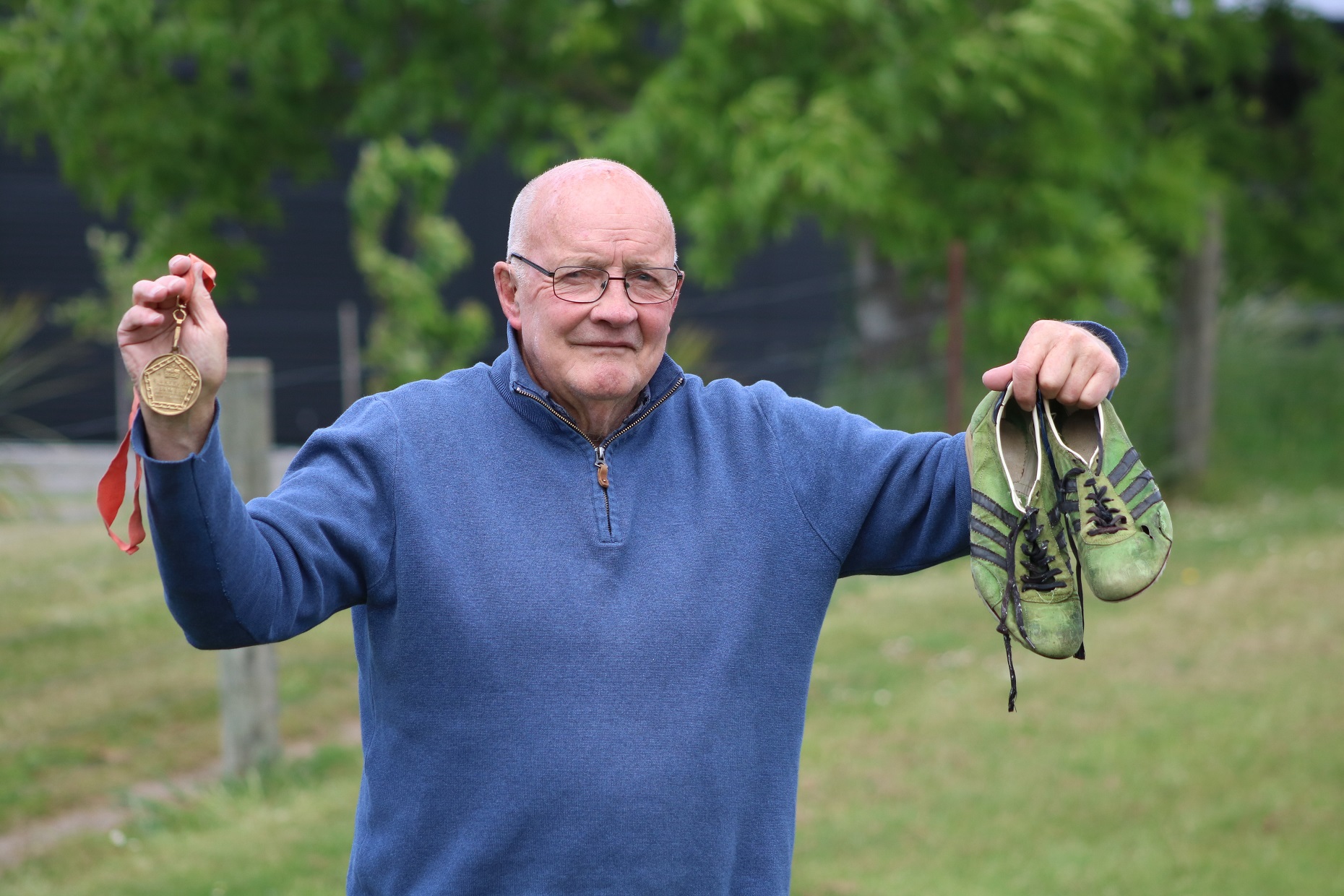
There are some sporting moments people never forget.
Dick Tayler could hardly believe people still recognised him a year after his own triumph — let alone 50 years later.
But it is hardly surprising.
The vision of Tayler sprinting down the home straight and leaping over the finish line, hands in the air, to win the 10,000m at the 1974 Commonwealth Games in Christchurch is imprinted in every New Zealander’s mind.
It remains one of New Zealand’s proudest sporting moments and one that will be remembered fondly in Dunedin early next year.
The national 10,000m championships will be held at the Caledonian on January 13, coinciding with the 50th anniversary of Tayler’s gold.
"After I won it, I couldn’t believe that even a year afterwards would see me somewhere and they’d say ‘excuse me’," Tayler said.
"Either they were there that day, or they remember watching it.
"Then that was it ... one year, two years, 10 years, 20 years, 25 and 30 years, and now we’re coming up 50 and there are still people around who can remember and want to remember — I’m rapt about it."
It will be a big weekend for Dunedin, hosting the Colgate Games, the 10,000m championships — "I’m over the moon to think someone even thought of that" — and Tayler’s anniversary and a celebratory dinner to follow on January 25.
Tayler, who lives in Waikouaiti, was proud to relive his sporting glory.
"Some moments in our life, we can’t believe they happen.
"I think that moment in my life, I had a day in the sun [for] 27 minutes 46 seconds."
Otago played its part in helping Tayler get there.
Tayler, who started athletics through a compulsory morning run while boarding at Timaru Boys’, first moved to Otago in 1967 and joined the Ariki club.
It was there where he linked up with coach and long serving Otago Daily Times sports reporter the late Alistair McMurran, who connected Tayler to coaching great the late Arthur Lydiard.
Tayler — who only became known as "Dick" when commentator Keith Quinn called him the nickname during the Commonwealth Games — moved to Blenheim in 1973, where Lydiard sent him to acclimatise to the heat, and was forced to run for Wellington in the Commonwealth Games trials, despite wanting to represent Otago.
He finished the race in 28min 30sec and was in fine form heading into the biggest race of his career.
"I remember when I qualified, Arthur Lydiard said ‘if you run 45 seconds faster then you’ll probably do well at the games’," Tayler said.
"He never said ‘you’re going to win’, but he said ‘you’ll do well’."
He was proud of his gold, which was the sporting event shown in colour on New Zealand television — "I still go on about that" — and the support he had to get on the podium.
"I did it because a lot of my coaches and people had faith in me.
"It was nice to be able to, so called, pay back and a lot of Otago people had been good to me."
After heading to the United States to run indoors, Tayler was forced into an early retirement in 1975 after being diagnosed with arthritis.
He worked on the family farm in Winchester and was involved in the harness racing, breweries and gaming industries throughout the years, but his love for athletics never wavered.
Tayler, who moved back to Otago in 2014, was named patron of Athletics Otago last year, a role he was humbled by and which allowed him to watch more events.
Otago had a rich pool of talented athletes, including Anna Grimaldi, Oli Chignell, Holly Robinson and Catherine Lund, and Tayler was impressed by them at the athletics awards earlier this year.
"To me, being able to shake the hands of these young people and talk to them ... some of them they’ve just begun a journey and hopefully it’ll be a good one too.
"I’ve always been motivated by the young people. Because as a young athlete I was motivated, lucky enough to know Peter Snell and Murray Halberg, and having Arthur Lydiard as a coach."
That motivation could go both ways when Tayler meets up-and-coming national athletes early next year.











